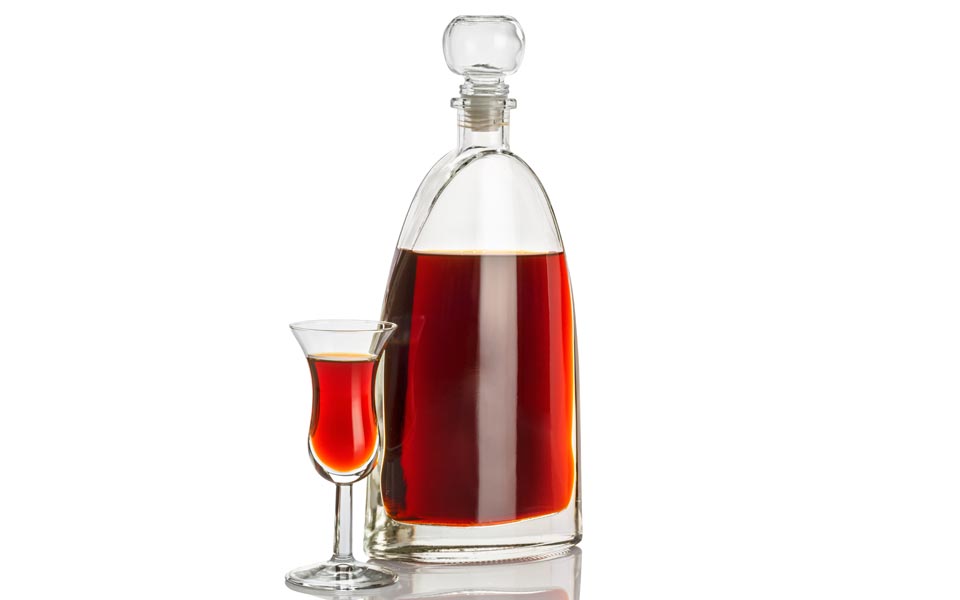Pick-me-up for Greek spirits as distillers get creative

Can an aged tsipouro compete with a good grappa? Or a Greek liqueur with a fine cognac or armagnac? The answer is yes, because in the past few years, Greek distillers have been working miracles, with a growing number of vintners joining their ranks and bartenders using Greek spirits in cocktails, giving them their own distinctive twist. Excellent tsipouro, premium ouzo, brandy, tentura and mastiha liqueur – which is now gaining an international reputation – are shaping a new category in the Greek beverage business and its future is looking bright.
Top-range spirits were recently presented at an event in Athens to producers, sellers and consumers, who tasted fine tsipouro, tsikoudia, various fruit liqueurs and brandies, among others, all made in Greece.
Is ouzo Greece’s national drink? Stathis Varvayiannis, a fifth-generation distiller at the well-known ouzo producer that is, along with Callicounis in Kalamata, one of the oldest distillers in Greece, is emphatic. After all, he says, half the ouzo consumed in Greece is produced on the island of Lesvos, where the Varvayiannis family business is based. What makes a good ouzo? “Good ingredients,” he says. “For example, we grow our own anise and the secret is to harvest it when it is at its most fragrant. The distillation needs to be slow and selective; you need to keep only the best of the spirit and throw out the rest. The water and herbs used also play an important part in producing a good ouzo.”
Varvayiannis exports 30 percent of its production to 18 countries: all over Europe (except Scandinavia), Turkey, South Africa, Australia and the United States. What about China?
“The Chinese don’t drink ouzo, unfortunately,” says Varvayiannis. “They don’t like because it reminds them of childhood cough syrups that are flavored with anise.”
Over on the other side of Greece, in Patra, Thanasis Parparoussis has been producing a wonderful spirit from Sideritis grapes and tsipouro from a blend of Sideritis and Mavrodafni.
“A wine liqueur can become as good as a malt whisky or a cognac depending on its complexity and aromas,” he says. “But everything needs to be done correctly, not hurried. The same goes for tsipouro and any other spirit.”
Parparoussis also believes that consumers have become more aware of the range and flavors that can be found in various grape-based spirits, but says that there are still problems in the market regarding quality control.
“There are two sides to the market,” says the vintner. “On the one hand we have businesses that are licensed, that use tax warehouses and whose products are inspected by the state’s chemical laboratory at the production, delivery and bottling stages. One the other we have the uncontrolled bulk market, which in the case of tsipouro in particular represents 95 percent of consumption. I’m afraid that the hike in the tax on wine and other alcoholic drinks will lead to even more illegal practices.”
How does a distiller go about the business of building a reputation and a discerning clientele?
“The company Skinos ran a very clever campaign to promote its mastiha (mastic gum) liqueur,” says Denny Kallivoka, who together with Eleni Nikoloulia brought to Greece the Difford’s Guide, the No 1 website on spirits in Europe and No 3 in the world. “Other than the designs and the overall presentation of the product, it also had the very good idea of holding the Mediterranean Cocktails Challenge, inviting bartenders from abroad to make cocktails with the liqueur. What it did, in short, was develop an entire package and it managed to make its mark on the international market. It may be the only Greek spirit with a strong brand name outside Greek borders today.”
Kallivoka believes that the potential for success and recognition is there.
“Excellent work is being done,” she says. “But I don’t think that foreign consumers are aware of the existence of drinks like premium ouzo or aged tsipouro. So we have to make the public familiar with these products as well as with the process by which they are produced. All the more so because foreign experts who taste them are invariably impressed. So the first thing is to focus on quality, then on packaging and presentation and, third, getting the spirits into bars. The products have to get to the bartenders – and we have a lot of excellent ones in Greece – so they can be introduced into cocktails and start growing on a younger consumer group.”





